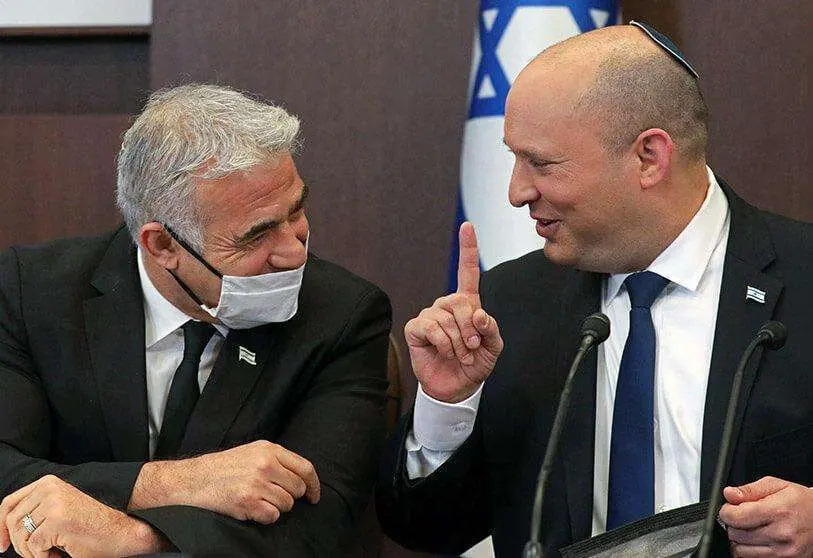Israeli government decides to dissolve parliament and bring forward elections

The Israeli government, headed by Prime Minister Naftali Bennett and made up of eight political parties, has decided to dissolve the Knesset and call early elections, according to Israeli media reports, after losing its majority in the House. This breaks up the coalition signed a year ago to oust former prime minister Benjamin Netanyahu from power.
Bennett and his government partner, Foreign Minister Yair Lapid, are expected to announce at 20:00 local time (18:00 GMT) their decision to table a bill next week to dissolve parliament. The resignation of two right-wing MPs and the habitual insubordination of three others have made it impossible for the executive to continue.
According to the Israeli press, Lapid will take over as interim head of government until a new government is formed after the early elections, which are expected to be held in October, as provided for in the government agreement. The centrist leader will have a few months to govern alone, which could strengthen his candidacy.
These will be Israel's fifth elections since 2019. In the last three and a half years, the country has experienced a period of great instability marked by the figure of 'Bibi' Netanyahu. The longest-serving prime minister in Israel's history has been embroiled in numerous controversies over his corruption cases.
The parliamentary arc, from left to right, including the Arab-Islamist Raam formation, made a pact in June 2021 with the intention of ousting Netanyahu from power. But the shadow of the right-wing leader is once again hovering over the political chessboard. His party could win the elections, but it would have problems in building a majority, according to early projections.
The coalition government marked its first anniversary last week and has been in crisis after crisis, especially since April, when it lost its parliamentary majority after the defection of Idit Silman, a member of parliament from Bennett's far-right Yamina party. In recent weeks, there has been much speculation that another Yamina MP, Nir Orbach, might leave the coalition and join the opposition led by the former prime minister's Likud party.
The Arab Islamist Raam party also froze its participation in the government for three weeks at the end of April in the wake of violent riots at Jerusalem's Esplanade of Mosques during the holy month of Ramadan, but then decided to rejoin an executive that has been on the ropes for more than two months.
The coalition formed by the tightrope walker Lapid managed to pass the general budget, Israel's first in more than three years, but recurring disputes over the rights of Israel's Arab minority, the relationship between religion and state and settlement policy in the occupied West Bank unravelled the alliance.








